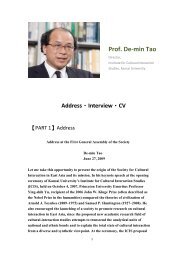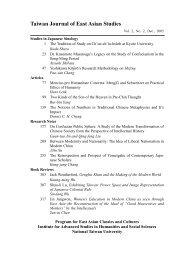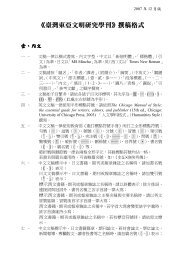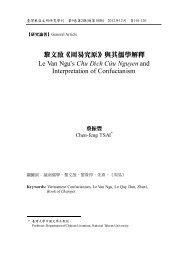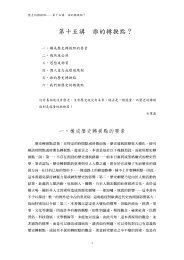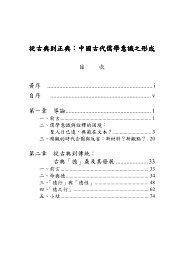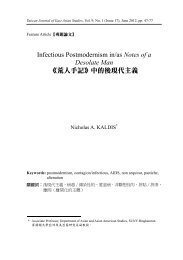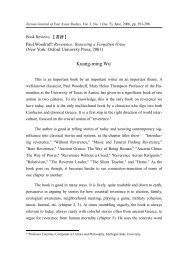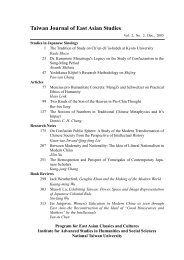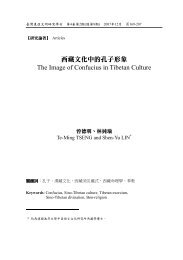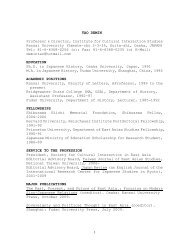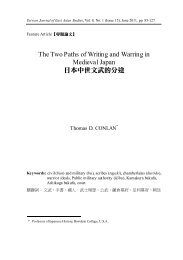臺灣東亞文明研究學刊 - 東亞經典與文化研究計畫 - 國立臺灣大學
臺灣東亞文明研究學刊 - 東亞經典與文化研究計畫 - 國立臺灣大學
臺灣東亞文明研究學刊 - 東亞經典與文化研究計畫 - 國立臺灣大學
Create successful ePaper yourself
Turn your PDF publications into a flip-book with our unique Google optimized e-Paper software.
226 Taiwan Journal of East Asian Studies, Vol. 4, No. 2 (Iss. 8), Dec., 2007<br />
It was a commonplace of Enlightenment thinking that history should be<br />
studied in order to instruct as well as to entertain, and that the history of great<br />
events should be set in contexts that would throw light on the manners, morals and<br />
beliefs of the actors engaged in them. No group of intellectuals in the eighteenth<br />
century was to be more sensitive to this agenda that the historians of the Scottish<br />
Enlightenment. David Hume, William Robertson John Millar and their followers<br />
developed a philosophical history that was 'philosophical' in the sense of being<br />
rooted in the principles of human nature and 'historical' in its sensitivity to the<br />
civilisational origins of national institutions and cultures. It was this that led David<br />
Hume to exclaim in 1770 that 'this is the historical age and this the historical<br />
nation.' 1 It was a historiography that made the Scots particularly sensitive to the<br />
European origins and contexts of their own history—Hume's treatment of the<br />
history of England and Robertson's treatment of the history of Scotland are<br />
particularly noteworthy in this respect, and it ensured that their attitudes to Europe<br />
would always retain a distinctively Scottish character.<br />
The period with which this essay is concerned was one in which the public<br />
intellectuals of Scotland were acutely aware that their country was at a turning point<br />
in its history and that careful reflection on the European contexts of its predicament<br />
would be of value in understanding its future. For the period that begins with the<br />
Glorious Revolution of 1688 and was to end with the Great Reform Act of 1832<br />
was one in which Scotland lost its political independence and was absorbed into the<br />
political and fiscal framework of what Colin Kidd has described as an Anglo-British<br />
state. 2 This process of absorption began in 1707 with the passing of an Act of<br />
Union, took shape as successive British governments deployed the military<br />
resources and patronage of the state to crush opposition to the Union and to buy in<br />
1 David Hume, The Letters of David Hume, edited by John Y. T. Greig, vol. 2 (Oxford: Clarendon<br />
Press, 1969), p. 230.<br />
2 Colin Kidd, Subverting Scotland's Past: Scottish Whig Historians and the Creation of an Anglo-<br />
British Identity, 1689-c.1830 (Cambridge: Cambridge University Press, 1993), p. 1<br />
ii



